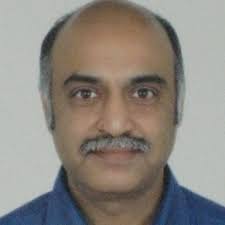Week 1 : Ideal switch, diode static characteristics, diode dynamic characteristics, reading the diode datasheet, thermal dissipation, heatsink design, diac and triac.
Week 2 : Bipolar junction transistor - operation, static and dynamic characteristics, loss calculation, safe operation area, reading the datasheet, parallel operation, darlington connection.
Week 3 : MOSFETs and IGBTs - operation, static and dynamic characteristics of MOSFET and IGBT, parallel operation, loss calculation and simulation.
Week 4 : Rectifier - Capacitor filter, circuit operation and waveforms, designing the circuit, setting up for simulation in ngSpice, simulation of circuit.
Week 5 : Inrush current limiting in rectifier-capacitor filter circuits, resistor solution, thermistor solution, transformer solution, MOSFET solution, relay and contactor solution, power factor concepts and measurement of power factor for rectifier capcitor filter circuit.
Week 6 : Linear DC -DC converter or linear regulators, shunt regulator, operation, design and applications, series regulator, operation and design, improvement solutions, datasheet study.
Week 7 : DC-DC switched mode converters : Buck, Boost and buck-boost converters, operation, waveforms, equations and simulation in ngSpice.
Week 8 : Forward converter operation, waveforms, core resetting methods, simulation in ngSpice, Inductor deisgn by area product approach, Flyback converter, operation and waveforms.
Week 9 : Magnetics design, permeance, inductor value and energy storage, inductor design, transformer design area product approach,
Week 10 : Push pull, half bridge and full bridge circuits, operation and waveforms, simulation example
Week 11 : Drive circuits, BJT drive requirements, drive circuit non-isolated, drive circuits isolated, MOSFET drive requirements, drive circuit non-isolated and isolated, series snubber, shunt snubber.
Week 12 : Close loop control, current control, slope compensation for current control, single phase inverter with sinusoidal PWM, simulation example

DOWNLOAD APP
FOLLOW US